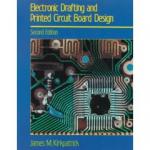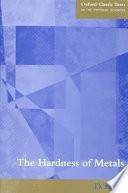Descrição
The Volume has six major sections:
Fundamentals of Corrosion covers the theory of aqueous and gaseous corrosion from the thermodynamic and kinetic perspectives. It presents the principles of electrochemistry, the mechanisms of corrosion processes, and the methods for measuring corrosion rates in aqueous, molten salt, liquid metals, and gaseous environments. An entirely new article introduces geochemical modeling as a means for characterizing and understanding corrosion in complex environments. While corrosion is usually associated with the environmental degradation of a material, this section also has new articles on electrochemical machining and refining, batteries, and fuel cellsthese articles describe ways in which corrosion processes can be applied for beneficial purposes.
Forms of Corrosion describes how to recognize the different types of corrosion and the forces that influence them. Revised and expanded articles address uniform corrosion, localized corrosion, metallurgically influenced corrosion, mechanically assisted corrosion, environmentally induced cracking, and microbiologically influenced corrosion. The section introduces the complex processes of wear-corrosion interactions that accelerate material deterioration at rates greater than those resulting from wear processes or corrosion processes alone.
Corrosion Testing and Evaluation describes the planning of corrosion tests, evaluation of test results, the latest in laboratory corrosion testing and equipment, simulated service testing, and in-service techniques for damage detection and monitoring.
Methods of Corrosion Protection begins by discussing as a baseline the corrosion resistance of bulk materials. The section continues with methods of corrosion protection, including surface treatments and conversion coatings, ceramic, glass and oxide coatings, metal coatings, coatings and linings, electrochemical corrosion control methods, and corrosion inhibitors.
Designing for Corrosion Control and Prevention addresses the topic from the perspective of materials selection and equipment design. Corrosion control is an economic process as well as a technical process, and this section discusses corrosion economic calculations, predictive modeling for structure service
life, and a review of corrosion costs in the United States.
Tools for the Corrosionist is an entirely new section that covers conventions in corrosion and oxidation, applications of modern analytical instruments in corrosion, materials science, statistics, and information sources and databases.




